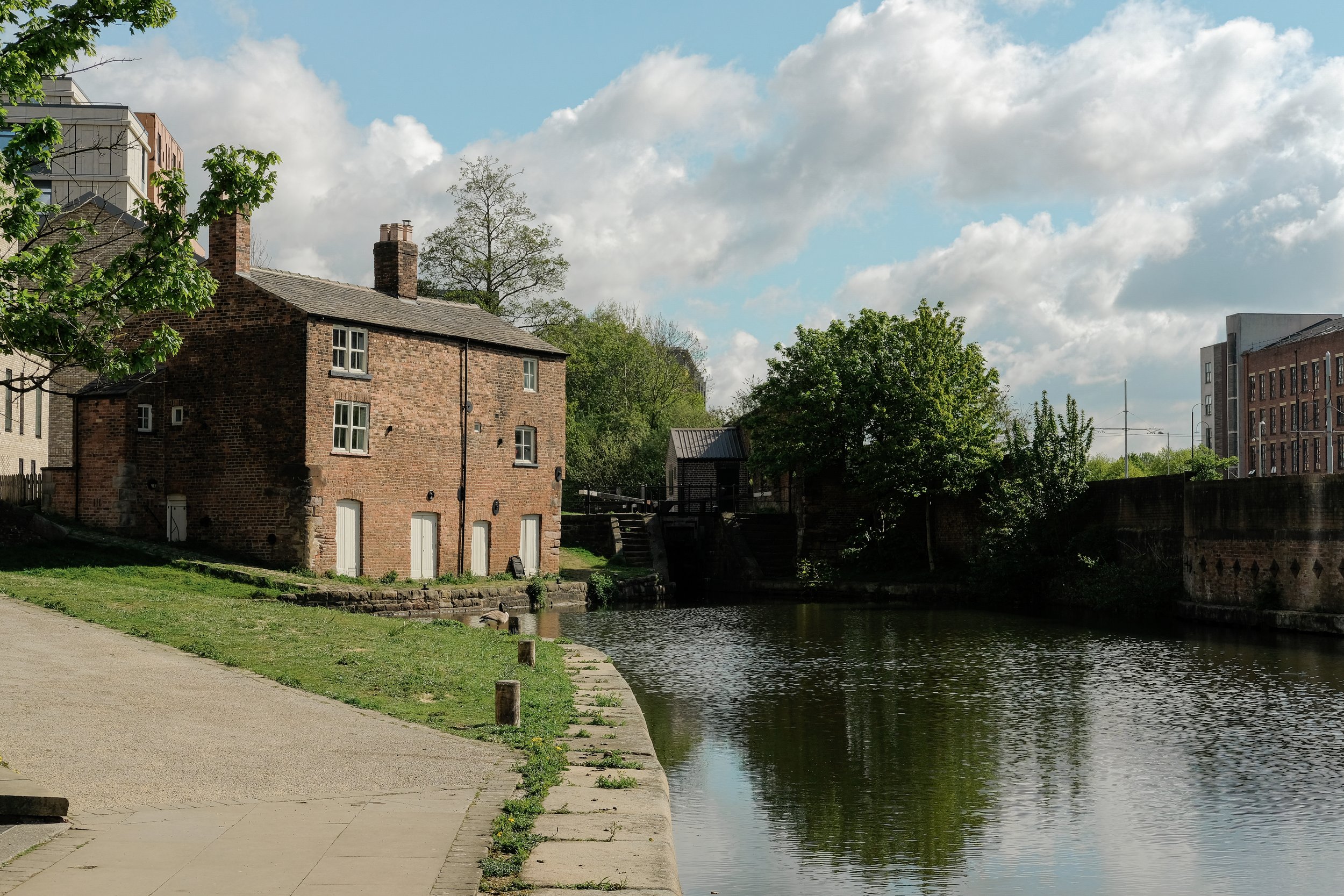

Manchester Climate Change Agency and In Our Nature
Manchester Climate Change Agency is the lead partner of the In Our Nature programme.
The Agency, in collaboration with the Manchester Climate Change Partnership, is responsible for overseeing and championing climate action in Manchester, which as a city has committed to become zero carbon* by 2038. This commitment is 12 years ahead of the legal requirement for the UK to become zero carbon by 2050 – part of the Paris Agreement**.
Manchester was the world's first industrial city, the birthplace of the industrial revolution.
The early 19th century saw the transformation of Manchester from a small market town into the booming ‘Cottonopolis’; a city dominated by towering cotton mills, crowded warehouses, and coal-fired chimneys spewing great plumes of black smoke into the sky.
Manchester became a hive of activity, a heady concoction of opportunity, invention and creativity whirring at a pace like never before. But it came at a cost, the worker bees were being smoked out, the climate was changing.
“Manchester will play it’s full part in limiting the impacts of climate change and create a healthy, green, socially just city where everyone can thrive.”

Manchester and the climate movement, a timeline:
“If we act now, we can still secure a liveable sustainable future for all.”
- Hoesung Lee, Chair of the IPCC
Taking urgent action on climate change
Together, Manchester Climate Change Agency and the Partnership:
monitor and report on Manchester’s progress towards zero carbon,
and suggest specific recommendations to help Manchester become zero carbon by 2038. These recommendations span across local, regional, and national government level, and include recommendations to the private, public and third sector, as well as to communities and individuals.
For Manchester to achieve zero carbon we need everyone to play their part – this is where the In Our Nature programme comes in.
*Zero carbon – To become a “zero carbon” city by 2038, it is assumed that all sectors will need to reduce emissions by at least 95% from current levels, with the residual 5% being reduced over the period 2038 to 2100.
**The Paris Agreement – a legally binding international treaty on climate change adopted in 2015.





